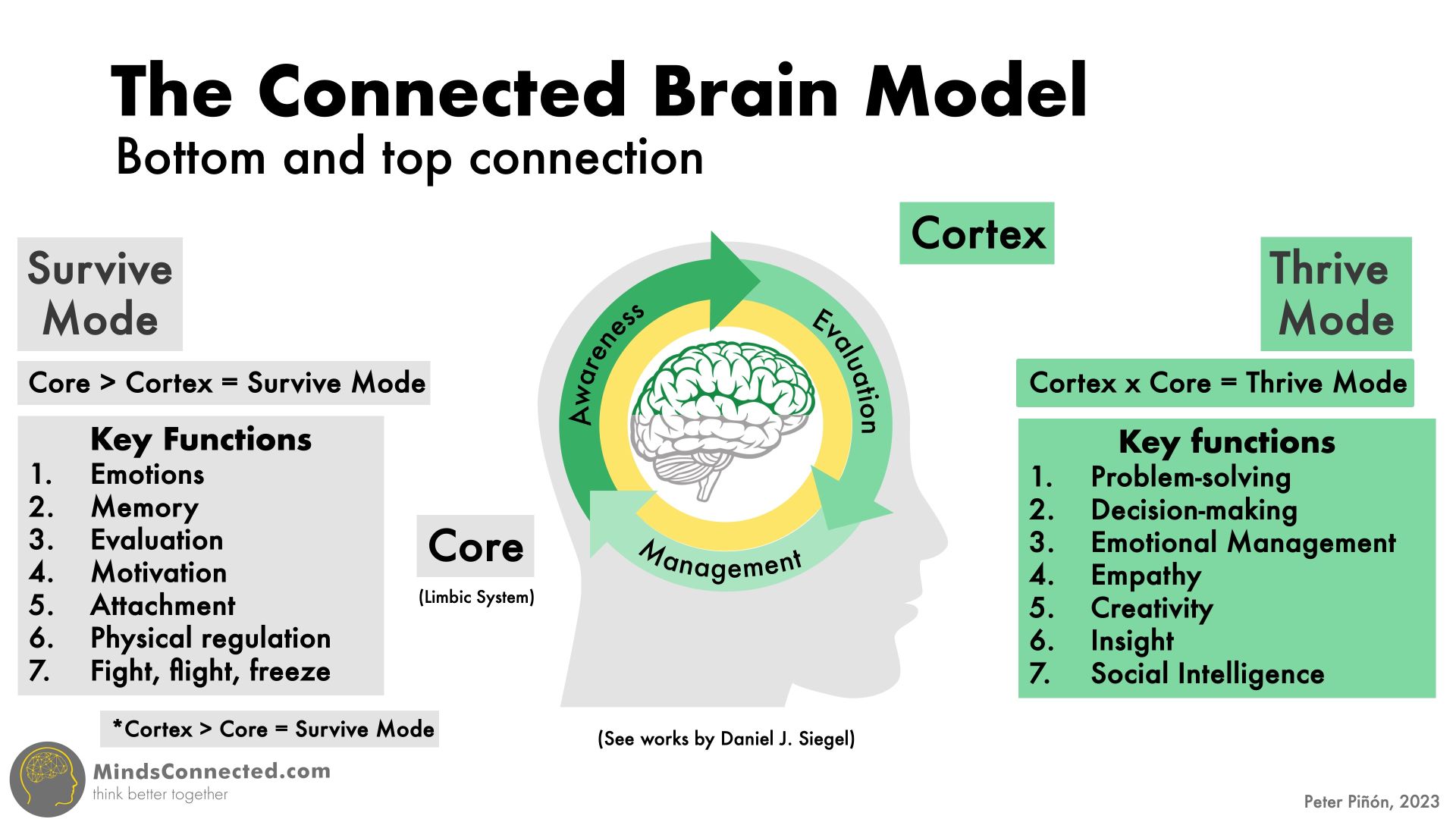Have questions you'd like us to answer?
Write your awesome label here.
We all react differently when faced with emotional situations.
Sometimes we get angry, other times we might feel scared or sad. Ever wonder why that happens?
The answer lies in the complex wiring of our brain, specifically, the relationship between the 'core' and the 'cortex'.
The Cortex: Think of this as your 'thinking cap'. It's responsible for complex thoughts, rational decision-making, and considering the consequences of actions.
Sometimes we get angry, other times we might feel scared or sad. Ever wonder why that happens?
The answer lies in the complex wiring of our brain, specifically, the relationship between the 'core' and the 'cortex'.
Understanding the Brain's Two Key Players:
The Core: Consider the core as the emotional GPS of your brain. It's quick to sense problems and wants to offer solutions instantly. This part is all about survival and quick decision-making.
The Cortex: Think of this as your 'thinking cap'. It's responsible for complex thoughts, rational decision-making, and considering the consequences of actions.

The Three F's of the Core:
When our core detects an emotional upheaval, it suggests one of three primary responses—Fight, Flight, or Freeze.
When our core detects an emotional upheaval, it suggests one of three primary responses—Fight, Flight, or Freeze.
- Fight: When anger surges, the core signals to confront the problem head-on.
- Flight: Anxiety or fear triggers the core to suggest retreating or avoiding the problem.
- Freeze: During moments of sadness or feeling overwhelmed, the core might suggest you stay still and wait.
Emotions Behind the Three F's:
Each of the core's primary responses typically aligns with certain emotions:
- Anger at its peak will suggest 'Fight'
- Fear at its peak will suggest 'Flight'
- Sadness at its peak will suggest 'Freeze'
Taking Back Control:
It's important to remember these are just the core's 'suggestions.'
We have the power to bring our cortex back into the driver's seat. By acknowledging these innate responses, we can make more rational choices, even in the heat of the moment.
We have the power to bring our cortex back into the driver's seat. By acknowledging these innate responses, we can make more rational choices, even in the heat of the moment.
So the next time you find yourself reacting impulsively in a situation, remember it's just your core trying to take the wheel.
And while it means well, you always have the option to engage your 'thinking cap' to steer your emotions and actions in a more reasoned direction.
And while it means well, you always have the option to engage your 'thinking cap' to steer your emotions and actions in a more reasoned direction.
Write your awesome label here.
Free Guide
How to think better
Overcome 5 of the Most Common Thinking Errors
Information
Phone
972-277-1728
E-mail
peterpinon@mindsconnected.com
Thank you!

